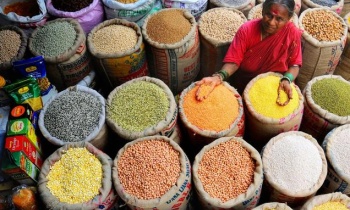QUNO contributes to CFS report on "Multistakeholder Partnerships"

During the 43rd Plenary Session in October 2016, the Committee on World Food Security (CFS) requested that the High Level Panel of Experts (HLPE) produce a report on “Multistakeholder Partnerships to Finance and Improve Food Security and Nutrition in the Framework of the 2030 Agenda”. This report will be presented at the CFS 45 Plenary session in October 2018.
Before the report’s publication in the coming year, the expert panel has launched an ‘e-consultation’ process to gather views and comments on eight questions built around the scope and building blocks of the report, as proposed by the HLPE Steering Committee.
QUNO appreciates the opportunity to participate in the e-consultation and commented on the questions related to Multistakeholder Partnerships and the respective roles and responsibilities of public and private stakeholders and civil society in such partnerships and the questions relating to stakeholders and farmers’ participation.
In particular, Programme Representative Susan Bragdon and Programme Assistant Nora Meier cautioned the HLPE to further study Public Private Partnerships (PPPs) in the area of food security before advocating for their use. While QUNO is emphasizing that “the issue is not pro-private sector and anti-public sector or vice versa,” it states that “it is about the appropriate roles and boundaries of each.” Therefore, first and foremost, there is a need for a better understanding of the role of the public sector, in particular as a provider of goods and services in food security as well as the role of the private sector in providing food security. In its statement, QUNO also asked to see “a reflection that governments play a critical, unique role in sustainable, national food systems and need to have both the space and capacity to act in the public interest.”
Furthermore, QUNO voiced their concern about the use of the term ‘stakeholder’ and the need to make sure that clear and rigorous definitions are understood and applied. In particular, “not every stakeholder has an equal stake” – for a small-scale farmer, decisions can be life and death, while for a corporation or company the “stake” may be in profits accrued or lost.
Finally, QUNO commented on the need for farmer participation and stated that “we would therefore like the HPLE to consider the need to more experimentation, experience and information sharing on the practicalities of how to secure the input of highly diverse farmer groups, and in particular small-scale farmers.”


